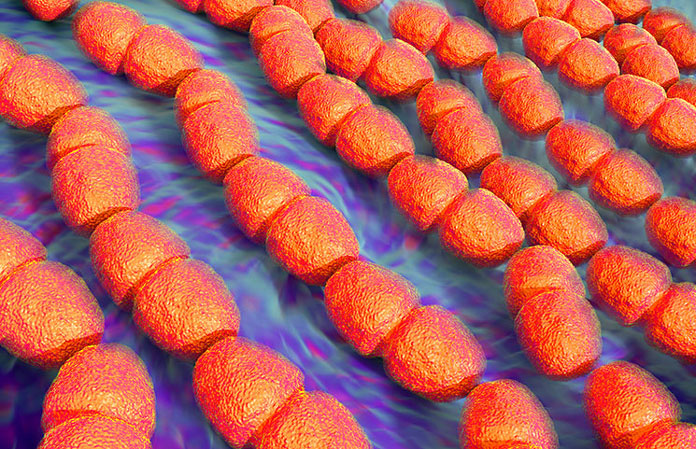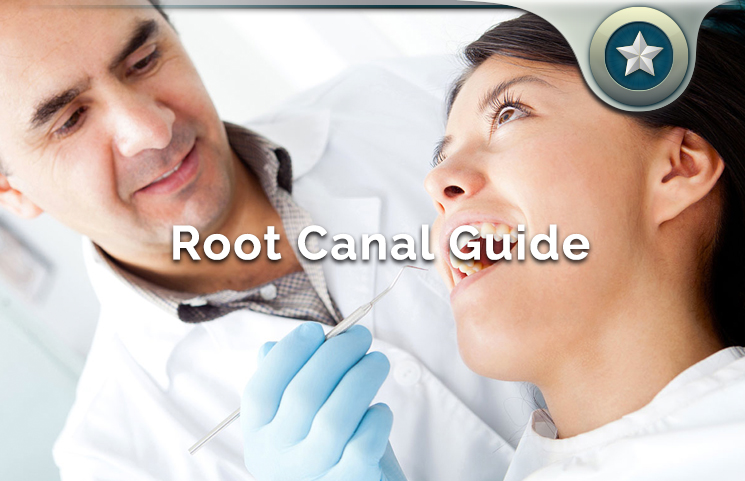A root canal can be defined as a dental procedure that is used in the treatment of deep dental cavities. It is usually recommended for dental cavities which have progressed inside the root of the tooth. This treatment requires that all the infected pulp inside of the tooth be removed and thoroughly cleaned.
Afterwards, the filling materials are injected into the tooth. This treatment allows the patient to retain the tooth but all the living tissue that is inside of the tooth is completely replaced.
The tooth is normally considered dead after a root canal procedure. Root canals have in recent times been a controversial subject in the ever evolving dental world.
Some dentists consider it to be a safe procedure while other extensive research indicates that the dental procedure may allow some dangerous bacteria to thrive in the mouth as well as the rest of the body
Root Canal Safety
The truth as to whether root canals are safe is a confusing one. This is because the answer you get depends on who you direct the question to. For instance, the American Association of Endodontists claims that there is no factual evidence that the dental procedure is associated with cancer or other forms of inflammatory diseases.
However, scientific research indicates that root canal could be a potentially cause some serious problems.

Root Canal Data
Let us look at some data to help us to arrive at a conclusive answer on the safety of root canal procedures. There is a study that set out to test the effectiveness of the cleaning procedures of the root canal.
The study found pathogenic bacteria and endotoxins in all the root canals. The study determined that the cleaning procedures were successful in clearing up to 44% of the pathogenic bacteria. However, it also established that these bacteria tend to persist.
The theory behind it is that these bacteria could lead to an array of problems in the long term. There are a number of ways that root canal procedures could lead to problems.
The main 5 ways include the following:
- There may be infections either outside or inside of the root canals.
- Cystic lesions may develop at the location where the root canal was done.
- There may be extrusions of the fillings used in root canals and this may lead to a response by the body’s immune system.
- Cholesterol crystals may accumulate and this may cause some irritation to the tissues.
- There may be problems in the healing of scar tissue at the root canal site.
Even long after the completion of the root canal procedure, the pathogenic bacteria are more or less guaranteed to remain. Logically, infections are bound to occur as well as other related problems. Antibiotics are usually administered to manage such a problem.
However, antibiotic use is accompanied by its related side effects which may be undesirable. Furthermore, there is a study that reveals that even the use of antibiotics is not very effective with regard to the reduction of both swelling and pain caused by bacterial infections. There is also no data from a reliable study or evidence that supports the effectiveness of antibiotics in the treatment or even management of root canal infections.
Problems Related To Lingering Bacteria
The bacteria usually present in all root canals is responsible for the stimulation of inflammatory molecules like TNF-alpha and Interleukin-1beta. The end result is usually a rise in inflammation in the entire body.
Cellulitis or abscess in the neck and head area, malaise and fever may result in severe cases and this may require the victim to be hospitalized.
Dr. Weston A. made the discovery that the inflammation and bacterial toxins may lead to some unrelated health problems even without the occurrence of major complications.

The Opinion Of Dr. Weston A On Root Canals
Dr. Weston A. is a renowned dentist who is popular for his work on the relationship between dental health and nutrition. He was able to prove that chronic diseases related to inflammation can be caused by as a result of root canal procedures. He was able to achieve this through experimentation with rabbits.
The Root Canal Procedure
Dr. Weston A. conducted numerous experiments on rabbits. He utilized teeth that were extracted from individuals diagnosed with different health problems. The research revealed that the rabbits developed the same conditions as the people whose teeth were extracted suffered from.
In fact, the rabbits developed the diseases such as arthritis and heart attacks in a matter of weeks.
Bacteria In Root Canals
The types of bacteria that were found in root canal procedures include groups such as Treponema, Streptococcus, Dialister, Porphyromonas, Prevotella, Parvimonas and Fusobacterium.
A majority of the bacteria mentioned above are naturally present inside the mouth. However, they only become a nuisance when people become infected with them.
The growth of these bacteria in the root canal is supported by anaerobic conditions in the root canal and it is also what makes them lethal. Furthermore, the ecosystem of these bacteria has the potential of making them even more risky.
The bacteria with regard to periodontal infections that are linked to various chronic inflammatory diseases as listed below:
- Tannerella, Treponema and Porphyromonas are bacteria that can cause diabetes and poor blood sugar control.
- Porphyromonas is a bacteria that is strongly linked to Alzheimer’s disease via its ability to cause inflammation in the human body.
- Treponema, Porphyromonas and Fusobacterium are bacteria that can cause atherosclerosis.
The transmissibility of these bacteria gives a good explanation as to why the same type of diseases were successfully transmitted from humans to the rabbits used in Dr. Weston’s experiment.
The list of links between diseases and root canal bacteria is endless. However, literature consistently indicates that all the infections caused by the bacteria inside the mouth are associated with chronic inflammatory diseases.
Course Of Action
It is advisable not to have a root canal procedure if you can avoid it as strongly indicated by extensive and reputable research. There are many less popular alternatives but they also have their own related challenges.
This means that the best and highly recommended option is to strive to maintain good oral health as you possibly can and hope that you never have to make the decision of whether to have a root canal or not.
Claims
There are a number of reasons that dentists who support root canals claim it is completely safe, they include the following:
- Other options that are considered to be more suitable than a root canal are non-existent in handling a dental situation of that magnitude.
- The dental industry has developed improved substances that can be used to fill teeth. This greatly decreases the margin or risk involved.
- The human body has a strong immune system that is perfectly capable of handling any form of existing infection that may be as a result of root canals.
- Adequate quantity of tissue is usually removed during root canal procedures.
On the other hand, dentists who are against root canal procedures argue out their case through three main points as follows:
- The filling materials used in root canals to occupy teeth that are hollowed out tend to leak and this can result in challenges.
- There is no standard way that has been developed to sterilize teeth. This situation results in bacteria remaining in the teeth that have been subjected to root canal procedures.
- There is literally no method that has been developed to completely eliminate all the dead tissue from teeth during root canal procedures. A situation that is known to result in future challenges with regard to periodontal infections.
Alternatives
If undergoing a root canal procedure is not recommended, what are the alternatives that can be used? There are holistic dentists that are of the opinion that teeth should be extracted and the periodontal ligament removed to stop further infections if dental cavities are quite deep. This usually results in a gap in an individual’s dental formula, this situation can be handles in several ways:
Dental Implants
This procedure involves the replacement of a tooth with cavities using a metal implant. It is still unknown whether the metal implant can lead to problems like the increase of the levels of metal in the body that may in turn trigger a response from the body’s immune system.
Partial Denture
This dental procedure involves the replacement of the extracted tooth with a removable denture. It is considered to be the option that is least invasive of the three.
Dental Bridge
This dental procedure is considered to have a higher level of safety compared to dental implants because of the fact that the metal implant is inserted in the gums in a different way.
A majority of health experts such as Dr. Mercola highly recommend that root canals and infected teeth be removed regardless of whether they feel and look fine or not. Nonetheless, a biological dentist ought to be consulted first before making the decision because dental procedures have both a cost and risk implication.
Better Lifestyle Choices
The modern lifestyles expose people to the contraction or development of diabetes, Alzheimer’s and even heart diseases which have recently been on an alarming rise.
The research conducted by both Dr. Haley and Dr. Price indicates that root canals can directly contribute to the subset of such cases.
Reputable sources suggest that if it is not possible to avoid a root canal procedure then there are certain lifestyle choices that have to be made to mitigate a potential problem. Such choices include:
- Maintaining good gut health.
- Effectively managing stress.
- Consumption of low inflammatory diet.
- Use of plant extracts like eucalyptus, rosemary or aloe vera. These possess antimicrobial extracts that fight bacteria responsible for attacking and infecting teeth and root canals.

Root Canal Guide Summary
Root canals are a controversial subject as there is no clear cut or safe solution. Dentists worldwide will concur that the best action to take is to maintain good oral health so as to avoid the need for having a root canal procedure.
However, individuals who already have root canals or those who need one can consult a competent dentist to further explore available options for handling their situation better.









